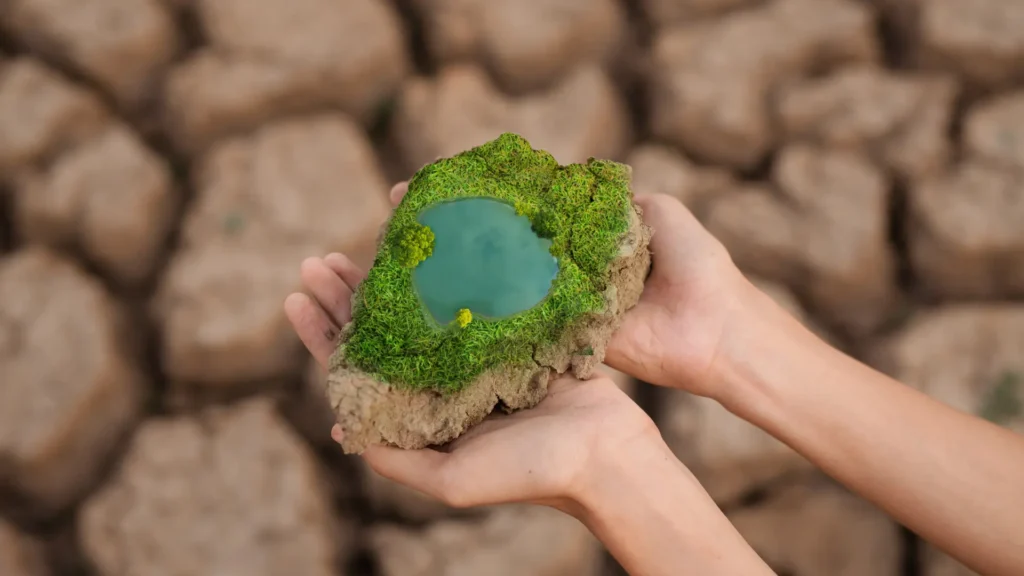Water, vital for sustaining life, is frequently undervalued. Yet, as our population expands, industries grow, and climate change accelerates, the urgency of managing water resources becomes increasingly apparent. This prompts us to ask: Can we adequately manage our water resources in a sustainable manner? In this article, we will explore the obstacles, potential remedies, and the crucial necessity for collaborative efforts to ensure a future where water is secure.
The Current Landscape
- Growing Demand: Projections indicate that by 2050, the world’s population will likely reach 9 billion, leading to increased water needs for agriculture, industry, and households.
- Water Pollution: Water quality is put at risk by pollutants from industrial runoff, agricultural chemicals, and untreated sewage, posing dangers to both human health and the integrity of ecosystems.
- Climate Change: Changes in rainfall patterns, increasing temperatures, and more frequent severe weather events worsen water shortages and disrupt natural water cycles.
- Water Scarcity: Currently, numerous areas experience water scarcity, where the demand surpasses the available supply, especially in dry and semi-dry regions.
Learn more about how you can make a difference in conserving and protecting our vital water resources. Contact Scaleban today!
The Path to Sustainability
- Natural Resource Management: Preserving watersheds, wetlands, and aquifers plays a crucial role in upholding water quality, replenishing groundwater, and reducing the risk of flooding.
- Technology Innovation: Progress in desalination, water recycling, and remote sensing technologies presents hopeful opportunities for improving both the availability and efficiency of water resources.

Taking Action
Addressing the complex challenges of managing water resources requires collaborative efforts across different sectors:
- International Cooperation: Since water crosses borders freely, there’s a need for agreements and collaboration between nations to sustainably manage shared water resources.
- Private Sector Engagement: Enterprises hold significant potential in fostering water efficiency through the adoption of sustainable practices, investment in water-saving technologies, and transparency regarding water-related risks.
- Community Involvement: Encouraging local communities to engage in decisions regarding water governance cultivates a sense of ownership and ensures that solutions are customised to meet local requirements.
- Research and Innovation: Ongoing exploration into strategies for managing water resources, along with innovation and the exchange of knowledge, is crucial for crafting solutions that are effective and suited to specific contexts.
Why Sustainable Water Management Matters
Sustainable water management goes beyond meeting present water needs. It involves guaranteeing a consistent provision of clean water for future generations. This entails safeguarding water sources against pollution, employing water judiciously, and adjusting to the effects of climate change. Sustainable water management is essential for achieving several Sustainable Development Goals set by UN, including:
Goal 6: Clean Water and Sanitation: This goal aims to make sure that everyone can access reasonably priced, safe, and sustainable water and sanitation by 2030. Achieving this goal hinges on sustainable water management.
Goal 7: Affordable and Clean Energy: Energy production often requires significant amounts of water. Implementing sustainable practices can decrease water usage in energy generation, thus contributing to the achievement of Goal 7.
Learn more about how you can make a difference in conserving and protecting our vital water resources. Contact Scaleban today!
Future of Water Management
Through the adoption of sustainable water management practices and the integration of innovative technologies, we have the opportunity to address water scarcity. Achieving this necessitates cooperation among governments, businesses, and individuals. Each of us can contribute to water conservation efforts, endorse sustainable approaches, and advocate for sound policies.
